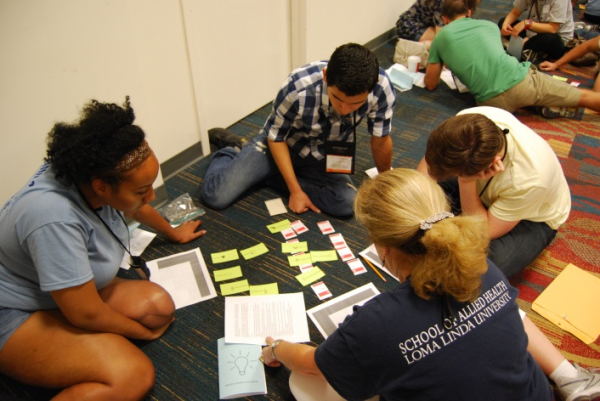10 Questions for Selecting a High School
GreatSchools.org is a wonderful resource to find rankings of PK-12 schools. They share 10 questions to consider when choosing a high school.
10 key questions for high schools
Choosing a high school? Don’t do it without getting the answers to these questions!
By GreatSchools Staff
1) Do you produce high school and college graduates?
First, ask how many high school freshman graduate (and what their yearly drop-out rate is), and how many graduates continue on to college. Most schools will provide a list of the colleges recent graduates are attending. This information will help you determine how serious the school is about sending graduates to college, and whether graduates get into prestigious schools.

2) Will you fully prepare my child for college?
Make sure your child will have a college-preparatory curriculum that meets state college and university requirements for core subjects like math, science, history, and English. Many parents are unaware that some public and private schools do not offer the required P.E., arts, or community service time colleges require, so your child would need to obtain the credit(s) outside of school.
3) Do you offer AP or honors courses?
Advance Placement (AP) classes offer college-level coursework to high school students. Students in AP classes take national exams at the end of senior year to gain college credit in everything from art history to calculus, Spanish to Japanese. AP and honors classes can help your child’s college application stand out from the rest, and can even save tuition by getting some required coursework out of the way. The availability of AP courses is another indication of how serious the school is about preparing graduates for college. r
r
4) Does the school meet my child’s basic needs?
Look at the school from your teenager’s perspective. A school and its location should feel comfortable for your child, as well as the commute times and transportation. Note the school’s start and end times, average and maximum class size, and overall school size. As they spend more time away from home, even details like clean restrooms and healthy lunch options can be important to your child’s well-being. Think about how well the school’s academic approach matches your child’s learning style.
Unlike when you were choosing an elementary or middle school, ask your teenager for his or her input. Your teen is more likely to succeed at a school he or she helped choose.
5) What support will you offer my child?
Ask what academic and social support the school offers. Are teachers available for individual help before and after school, or during breaks? Find out if there is a peer tutoring system that provides students with academic help from other students. Ask what the school does when a student is struggling or failing a class. Advisory groups are a common way schools regularly check in with students to assure they are thriving academically, socially, and emotionally. Finally, find out if there are therapists or social workers available for emotional and social support.

6) Is there help with the college application process?
Another important area of support is during the college admission process. Most high schools offer some college counseling, but investigate exactly what that means. Inquire whether the school offers courses on filling out college applications and taking the SAT, in addition to directing kids towards suitable colleges. Ask how many college representatives visit the school every year.
7) How many hours of daily homework?
High school students should have homework, but the quantity and quality can vary widely. Homework should include plenty of essays and reading analysis in the humanities. Decide whether your child will thrive or at least manage the expected workload. If your child is an athlete, find out if it is possible to play on a sports team and still complete the expected homework. Ask whether homework is a given over weekends, breaks, and holidays. Finally, find out if there is any after-school homework support.

8) What electives, sports, and service opportunities are available?
Be sure that the school offers your child’s favorite sport or activity, such as art, music, or drama. What are the requirements for playing on a team? Colleges and universities often ask applicants how much community service students have done in high school, so ask what service opportunities the school offers.
9) Will my child be safe here?
Safety is paramount. Find out what the school’s disciplinary policy is and how many suspensions and expulsions they have had over the past two years. Observe the corridors during the school day to see how calm and safe they appear. Inquire whether the school has an open-campus policy, meaning students can leave the school grounds during school hours for lunch, and possibly at other times. Ask whether there has been any hazing of freshman. Does the school have a written bully policy (and even staff training program) for both on campus and online bullying? Finally, don’t hesitate to ask if there is an alcohol or drug problem on campus. While this can be an uncomfortable question to ask, it’s vital to get a sense of how the school responds to this reality on high school campuses, and whether or not they are aware and pro-active.

10) Who will my child be socializing with, and how?
Visit the school during a regular school day, and be sure to have your child “shadow” a student. Are students friendly and responsive on the whole? Are there obvious cliques excluding some students? How competitive is the school’s atmosphere? Find out whether students come from a large geographic area, which may mean extra driving for you. Ask what organized student activities the school offers, such as clubs, dances, field trips and overnight trips.
